U.S. and China Resume Talks on Tariffs and TikTok

© Martial Trezzini/Keystone, via Reuters


© Martial Trezzini/Keystone, via Reuters


© Matthew Abbott for The New York Times


© Felix Schmitt for The New York Times


© Niranjan Shrestha/Associated Press


© Chang W. Lee/The New York Times
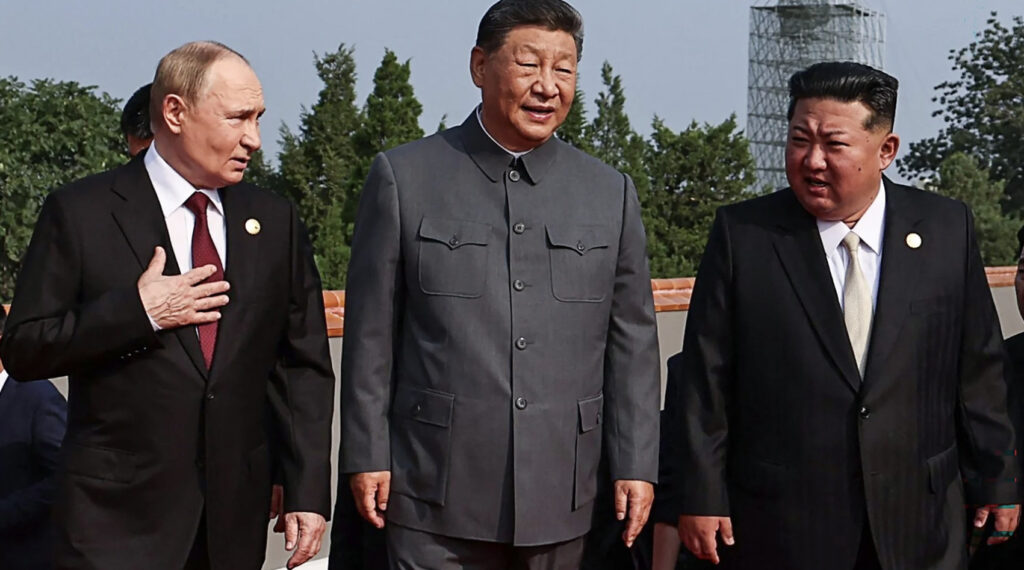

Chinese President Xi Jinping announced that China will strengthen strategic communications and deepen cooperation with North Korea in a congratulatory message to DPRK leader Kim Jong Un, North Korean state news agency KCNA reports.
In his letter, Xi stated that “successfully protecting, strengthening and developing relations between China and the DPRK” remains the consistent and unchanging policy of the Chinese party and government, according to KCNA.
The Chinese leader referenced Kim’s September 3 visit to Beijing and participation in a military parade, noting they jointly “presented a plan for the development of relations between the two countries in the coming years.”
“The Chinese side is ready to join hands in promoting the friendship between China and the DPRK and the socialist cause of the two countries through enhanced strategic communication, active exchanges and close cooperation with the DPRK,” Xi stated in the message.
The September 3 military parade in Beijing marked the first public meeting between Xi Jinping, Kim Jong Un, and Russian President Vladimir Putin, KCNA reported.
The United States responded to the Beijing parade by announcing that President Trump had ordered the revival of the army due to the growing alignment between Russia and China. On September 5, Trump declared that the world had “lost India and Russia” through these countries’ rapprochement with China.


© Agence France-Presse — Getty Images


© Eric Lee/The New York Times


© Haiyun Jiang/The New York Times


© Doug Mills/The New York Times
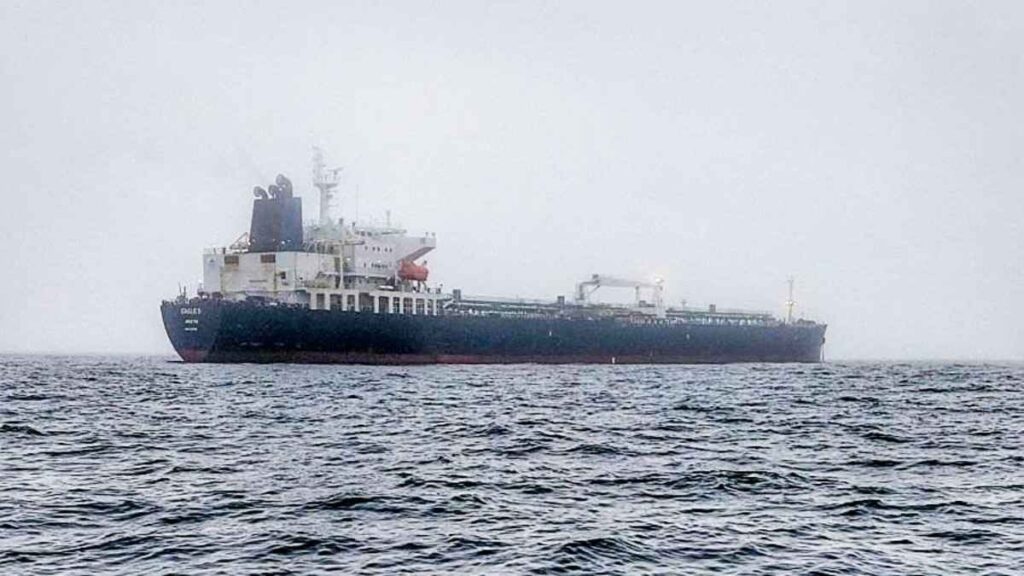

New Delhi is taking a step in defiance of American demands. Bloomberg reports that India has officially confirmed that it will continue buying Russian oil despite the 50% US tariffs on Indian goods.
India has condemned the US decision, pointing out double standards: Europe itself continues to purchase oil from Russia. EU–Russia trade in 2024 reached €67.5 billion in goods and €17.2 billion in services. Europe also imported a record 16.5 million tons of Russian LNG, the highest number since 2022.
“Where we buy our oil from, especially a big-ticket foreign exchange item where we pay so much, the highest in terms of import, we will have to take a call on what suits us best. We will undoubtedly be buying,” stated India’s Finance Minister Nirmala Sitharaman.
In doing so, New Delhi ignored US President Donald Trump’s demand to stop importing Russian oil, prompting renewed public criticism from him.
“Looks like we’ve lost India and Russia to deepest, darkest, China. May they have a long and prosperous future together!” Trump wrote in a social media post, adding a photo of the three leaders together at Xi Jinping’s summit in China.
Meanwhile, Andrii Kovalenko, head of Ukraine’s Center for Countering Disinformation, has reported that Russian oil shipments to India fell from 1.8 million barrels per day in 2024 to 1.1 million in September 2025.
“Delhi is demanding additional discounts and payments in non-convertible rupees. US tariffs on Indian goods for Russian oil have already reached 50%,” he says.
He adds that the US and EU sanctions have limited Moscow’s oil trade, and now India and China are dictating the terms.
At the same time, Kovalenko reveals that China has increased its purchases of Russian oil, from 50,000 barrels in August to 420,000 barrels in September, but also only under conditions of significant discounts, which are $5–6 below Brent.
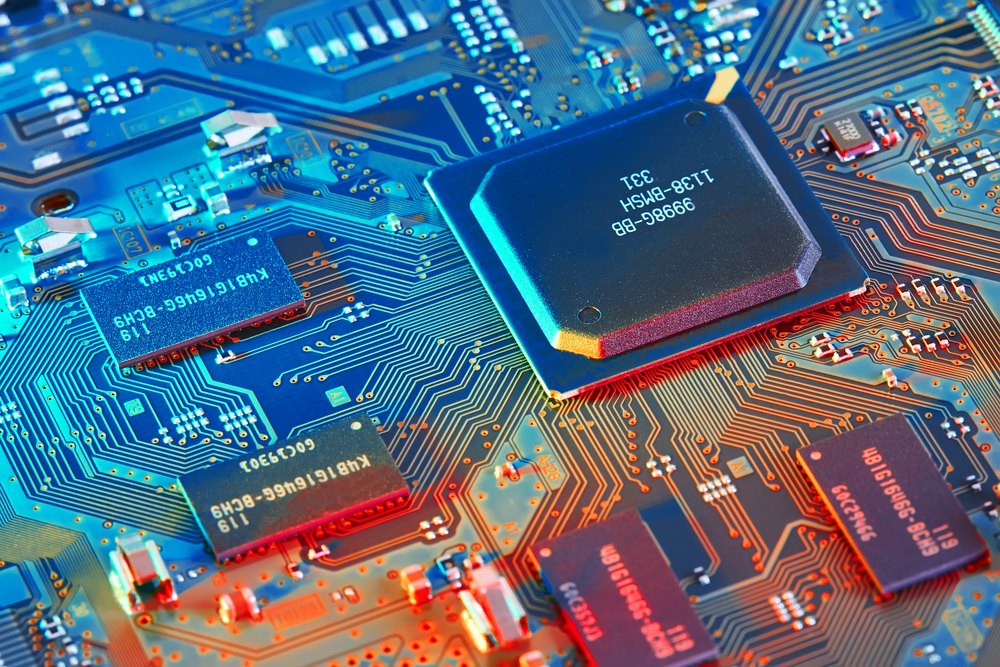

For decades, China held a monopoly on strategic metals. But now a new player, Georgia, has found 240 million tons of manganese ore on its territory, already being called “the new lithium,” The Diary 24 reports.
In the Chiatura region, reserves of manganese ore amounting to 240 million tons have been confirmed. Manganese is increasingly seen as an alternative to lithium for electric vehicle batteries. It allows the creation of cheaper and more reliable cathodes, which could radically change the balance of the global market.
At the same time, the pro-Russian Georgian Dream party holds power in Georgia. As is known, China is Russia’s main economic partner, which sponsors its war against Ukraine. In addition, about 20% of Georgia’s territory is currently controlled by Russia, something Moscow can use as leverage for blackmail.
The current government has effectively stalled Georgia’s accession to the European Union. This reduces the country’s chances of democratization and, therefore, hinders alliances with Western nations.
The emergence of a competitor like Georgia has become an unexpected challenge for China, which has dominated strategic resources for decades. The US and other Western countries are already considering cooperation with Tbilisi to reduce dependence on Beijing.


© Visual China Group, via Getty Images


© Hiroko Masuike/The New York Times


© Anna Rose Layden for The New York Times


© Haiyun Jiang/The New York Times


© Haiyun Jiang/The New York Times


Chinese companies directly supplied at least €55 million worth of parts and materials to sanctioned Russian firms in 2023–2024. During this period, Moscow was actively building a large-scale logistics infrastructure for its drone program, The Telegraph reports.
In 2025, Chinese Foreign Minister Wang Yi told the European Union’s top diplomat that Beijing can’t accept Russia losing its war against Ukraine. In this case, according to him, the US would turn its full attention to China.
Almost a quarter of the supplies, worth €12.5 million, went to companies involved in producing Iranian Shahed kamikaze drones in a Russian special economic zone in the city of Alabuga.
Among the goods exported from China were: aircraft engines, microchips, metal alloys, fiberglass, optics, and carbon fibers – all critical components for drone production.
Beijing publicly claims neutrality in the war, but the supply of drone parts reveals deep military cooperation with Moscow. On the battlefield, this is confirmed by the fact that Ukrainian troops regularly find Chinese components in downed Russian equipment.
“One has a very important interest in the survival of the other; this is not going to change. It’s a simple, geographic fact,” said Andrea Ghiselli, an expert on China’s foreign policy.
At the same time, unlike North Korea, China avoids direct participation in the war. Instead, it allows its companies to export dual-use goods. This has led to record trade volumes between the two countries – €246 billion in 2024.
In just three months of 2023, the Chinese company Ningbo Peak Cloud Import and Export supplied Russia with aircraft engines worth €3.5 million for the Ural Civil Aviation Plant, which is under sanctions.
In total, The Telegraph identified 97 Chinese suppliers. At least five Russian firms, including the Ural Civil Aviation Plant, PT Electronic, and Radioline, directly use Chinese components in drone production.
As a result, in just the first half of 2024, Russia produced more than 2,000 “Harpy” drones, almost matching the total output of the entire previous year.
The company Mile Hao Xiang Technology also supplied engines for the “Gerbera” drone worth more than €1.5 million in 2022–2023, including through intermediaries. The main importers were Russian companies Sequoia JSC and Unikom LLC.
The real volume of supplies may be much higher than official statistics show.


© CCTV, via Reuters


The world has changed forever. Maria Berlinska, a Ukrainian military volunteer, says that the joint parade in China, attended by Russian President Vladimir Putin, marks a “starting point for a new world order.”
At the Shanghai Cooperation Organisation summit held in Tianjin, China, from 31 August to 1 September 2025, participants included leaders from the ten member states: China, Russia, India, Pakistan, Kazakhstan, Kyrgyzstan, Tajikistan, Uzbekistan, Iran, and Belarus.
“If before they did this anyway but at least they were afraid to say it so openly, the main lesson now is—they are no longer afraid,” she says.
The axis of authoritarian dictators now tells the world, especially the West: the previous order is over, “now we are in charge.”
These leaders show that their soldiers can die “by the hundreds of thousands,” still swearing oaths to their rulers.
“Meanwhile, Western voters will only scream and protest when the first coffins arrive,” adds Berlinska.
Sanctions against world leaders also cannot stop these countries, because they have enough combined domestic economic power.
“So prepare your ‘pampered democratic asses to be removed from the seat’ of global governance. ‘We are already here, and we are coming for you,’ they are showing,” she emphasizes.
The world is now divided into “before and after,” Berlinska says.
“The only pain I feel is that my country, my people, are on the frontier of the sleepy-bureaucratic Western civilization. And the battles in this war are only beginning,” the Ukrainian volunteer adds.
Earlier, the head of Ukrainian intelligence, Kyrylo Budanov, also spoke about the new world order. He said that it was “not perfect, not as powerful as many believed, but it existed until 2014.” According to him, it changed after Russia forcibly altered Ukraine’s borders, annexing Crimea.
“All the problems started from there. When everyone silently watched the violation of the world order and did nothing,” he said.


Russian President Vladimir Putin and Chinese leader Xi Jinping discussed the possibility of extending human life to 150 years and the prospects of “biological immortality” at the Shanghai Cooperation Organisation summit, Bloomberg reports.
Vladimir Putin, born 7 October 1952, is 72. Xi Jinping, born 15 June 1953, is also 72.
Xi noted that in the past, most people did not live past 70, while today, “at 70, a person is still a child.”
“Due to the development of biotechnology, human organs can be transplanted continuously, and people will be able to live longer and longer, potentially even achieving immortality,” Putin responded.
Putin compared this vision to ideas promoted by former Italian Prime Minister Silvio Berlusconi, who actively advocated health and life extension initiatives.
These discussions come against the backdrop of the massive loss of life in Ukraine. Over one million Russians have died and been wounded during the war since 2022. Mariupol experienced mass killings with at least 100,000 civilians killed, and more than 13,800 civilians have been victims of missile attacks across Ukraine. Meanwhile, Putin and his counterpart are discussing eternal life.


© Getty Images


Russian presidential assistant Yuri Ushakov has rejected allegations by US President Donald Trump that Russia, China and North Korea are conspiring against America.
“No one was arranging any conspiracies, no one was plotting anything,” Ushakov said, according to Russian news agency Interfax and propagandist channel TASS.
What triggered Trump’s response? A massive military parade in Beijing on 3 September marking 80 years since Japan’s World War II surrender. Putin and Kim Jong Un joined Chinese President Xi Jinping alongside 24 other foreign leaders—but not a single Western head of state except Slovakia’s Robert Fico.
The parade showcased China’s latest military hardware. Fighter jets, missile defense systems, and hypersonic weapons rolled through Tiananmen Square in what Reuters called one of China’s largest military displays in years.
Trump’s post also referenced America’s historical support for China during World War II, noting that “many Americans died in China’s quest for Victory and Glory.” He questioned whether Chinese President Xi Jinping would acknowledge the “enormous support and blood” provided by the United States in helping China secure freedom from occupation.
Ushakov added that all parties understand the role currently played by the United States and the Trump administration in international affairs, referring to their attempts to broker ceasefire in Ukraine.
The military parade served a dual purpose—commemorating historical victory while demonstrating current capabilities to an audience of primarily non-Western allies. China’s message was clear: its military modernization continues with supportive witnesses from across Asia, the Middle East, and beyond.


© Ng Han Guan/Associated Press


© Florence Lo/Reuters
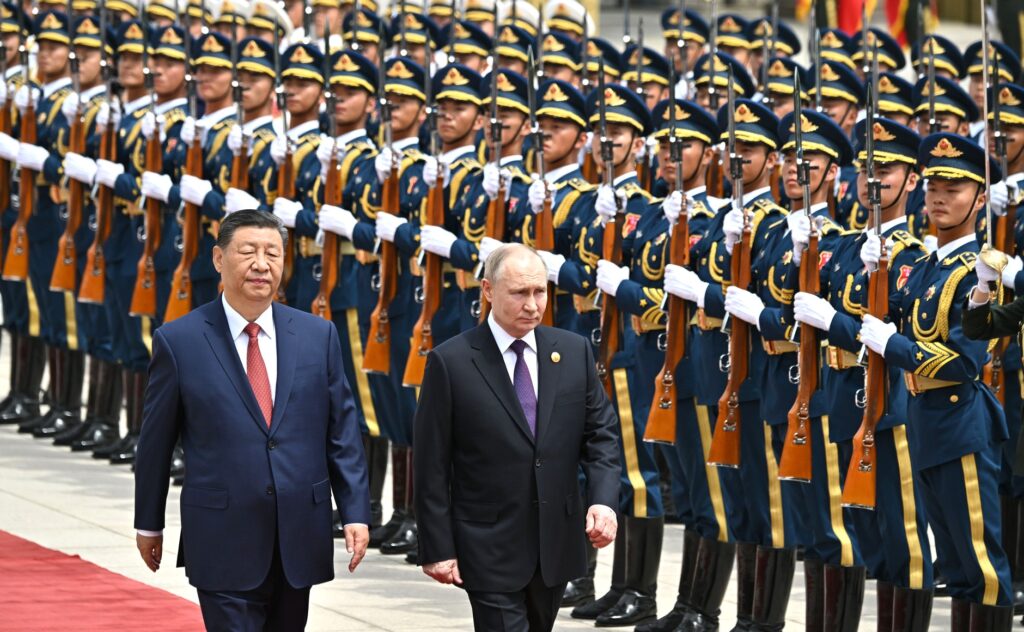

Russian President Vladimir Putin says the EU has no reason to worry about potential Moscow aggression. He denies that the Kremlin is preparing for an attack and says that under US President Donald Trump, America began to “listen to Russia,” reports the pro-Kremlin outlet RIA Novosti.
Putin made these statements during a meeting with Slovak Prime Minister Robert Fico on the sidelines of the Shanghai Cooperation Organisation summit in China.
On 31 August, he arrived in China, Russia’s main economic partner, which provides the Kremlin with unprecendent support during its war against Ukraine, on a four-day visit. It came just as US President Donald Trump’s deadline for a meeting with Ukrainian President Volodymyr Zelenskyy to stop the war has expired.
Putin claims that any talk about Moscow planning to attack the EU is “Western fiction.”
“They are specialists in fairy tales and horror movies. Any rational person perfectly understands that Russia is not going to attack anyone,” he said.
Before the beginning of Russia’s all-out war on Ukraine in 2022, Putin also repeatedly denied any plans for an attack or invasion in his official statements. Russian officials consistently rejected accusations of preparing military actions against Ukraine, calling the buildup of troops near the border “unfounded tension-mongering.”
It was only on 22 February 2022, that Putin announced the start of the so-called “special military operation” on Ukrainian territory, effectively acknowledging the military actions that had already begun.
The Russian ruler also justified aggression in Ukraine, claiming that Moscow is allegedly “forced to protect people who tie their fate to Russia.”
“Russia’s only goal in Ukraine is the protection of its own interests,” Putin added.
He also shifted responsibility for attacks on Ukraine on its authorities: “Moscow endured Ukrainian strikes on Russian energy for a long time and then began to respond seriously.”
Putin assured that Russia has “never opposed Ukraine’s EU membership” but called Ukraine’s accession to NATO unacceptable. He also allowed for the possibility of a tripartite cooperation at the Zaporizhzhia Nuclear Power Plant involving the US and Ukraine.
Experts emphasize that such statements are part of a Kremlin information operation aimed at the West and the Global South, intended to justify three years of aggression and attacks on civilians.
In addition, Putin praised the administration of US President Donald Trump, which refused to provide free aid to Ukraine and introduced no new sanctions against Russia. According to him, under Trump, America began to “listen to Russia,” a claim he said was confirmed by the Alaska summit.
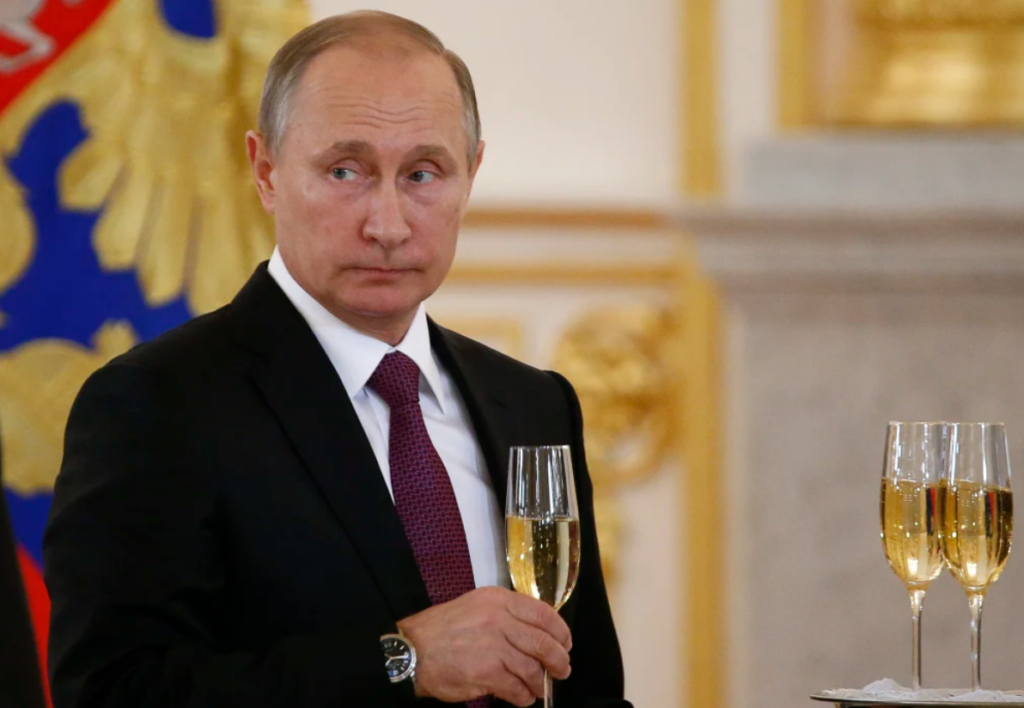

Russian President Vladimir Putin is once again lying about strikes on Ukraine. During a meeting with Slovak Prime Minister Robert Fico at the summit in China, he claimed that Russia’s massive attacks were in response to Ukrainian assaults on Russian energy facilities, according to the pro-Kremlin outlet RIA Novosti.
“Moscow endured Ukrainian strikes on Russian energy for a long time, and then began to respond seriously,” Putin said.
Meanwhile, Andrii Kovalenko, head of Ukraine’s Center for Countering Disinformation, calls his statements a blatant lie, as since 2022, Russia has systematically attacked Ukraine’s energy infrastructure, especially during the preparation for winter and in winter itself.
Once again, he tried to shift the responsibility for Russian aggression onto Ukraine, explained Kovalenko.
“Putin is preparing an informational alibi for strikes on Ukrainian energy. In Beijing, he claimed that Russia ‘never hit energy’ and only responds to Ukrainian attacks on the oil sector. This is false,” he stressed.
Kovalenko added that the Russians strike during the lead-up to winter and directly in winter. This year, they also did not stop attacks on energy in regions bordering Russia.
According to Kovalenko, Putin’s speech in Beijing is part of another Russian information operation aimed at the West and the Global South.
“It is an attempt to shift responsibility for terrorizing Ukrainians onto us,” he claimed.
The Russians were the ones who started the war and attacks on energy, and they have never stopped.
According to the UN, Russia’s war has killed more than 13,800 civilians in Ukraine. Attacks on Ukraine intensified, particularly in 2025, following the launch of peace initiatives by US President Donald Trump.
Russia was not punished with sanctions or any other measures. On the contrary, President Putin was invited to a meeting with Trump in Alaska.
Also, during the meeting with Fico, Putin called “on his friends in Europe” to cut Ukraine’s fuel and electricity supplies, the Kremlin press service reports. The Russian ruler emphasized that Ukraine receives a significant amount of energy resources through its Eastern European neighbors.
“Shut off their gas supplies, shut off their electricity supplies, and they will immediately understand that there are limits to violating others’ interests,” Putin said in a conversation with Robert Fico.
He also praised the administration of US President Donald Trump, which refused to provide free aid to Ukraine and introduced no new sanctions against Russia. According to Putin, under Trump, America began to “listen to Russia,” a claim he said was confirmed by the Alaska summit.


© Pool photo by Kevin Frayer


© Andrea Verdelli for The New York Times

Xi Jinping, flanked by Vladimir Putin and North Korea’s Kim Jong Un, will oversee a major military parade in Beijing’s Tiananmen Square on Wednesday

© Reuters
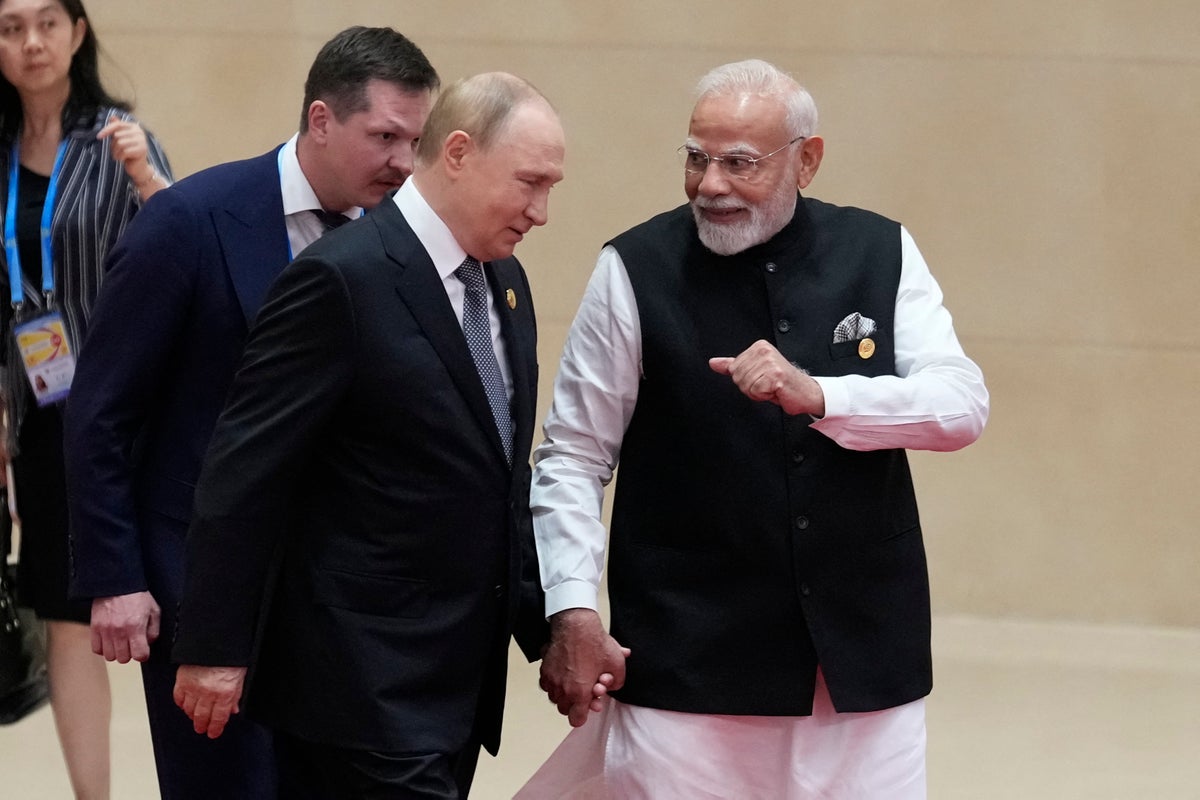
Indian leader strengthens ties with Russia as Trump escalates tariff dispute with New Delhi

© AFP/Getty


© Pool photo by Suo Takekuma
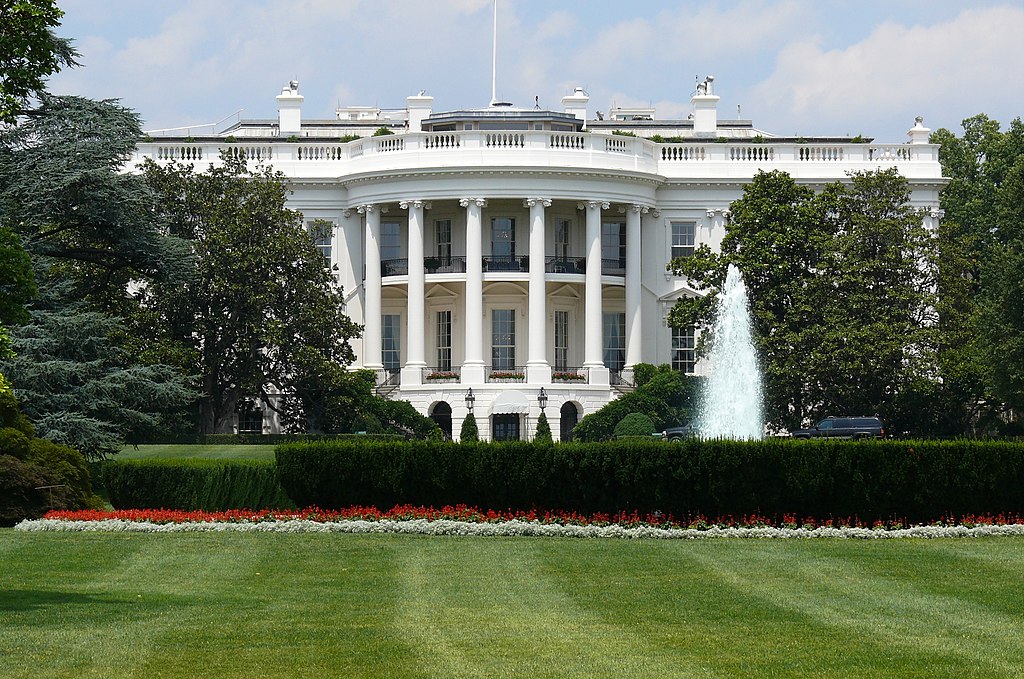

The White House has urged European countries to follow the US and impose restrictive measures on India for its purchases of Russian oil, which fund the war in Ukraine, India Today reports.
US tariffs on Indian goods
In August 2025, the US raised tariffs on goods from India up to 50%, criticizing New Delhi for supporting Russia’s economic machinery. At the same time, Washington has not imposed sanctions on China, the main sponsor of the war and Moscow’s key economic partner.
A Russian drone caught filming its own camera test in a Chinese factory before being shot down in Ukraine
India has criticized the US decision, pointing out double standards: Europe itself continues to purchase oil from Russia. EU–Russia trade in 2024 reached €67.5 billion in goods and €17.2 billion in services. Europe also imported a record 16.5 million tons of Russian LNG, the highest number since 2022.
Many critical Russian exports remain unrestricted, including palladium for the US automotive industry, uranium for nuclear power plants, fertilizers, chemicals, metals, and equipment.
Sources report that Trump also pressured India to nominate him for the Nobel Peace Prize. After being rejected, he responded with tariffs. This has prompted India to strengthen its ties with China and reinforced so-called anti-American cooperation among the so-called “axis of upheaval” countries.
Today, the US administration seeks to have Europe join in sanction pressure on New Delhi if India does not stop buying Russian oil.


© Saumya Khandelwal for The New York Times


© Alexander Kazakov/Sputnik


© Eric Lee for The New York Times

Putin addresses leaders gathered in China for the SCO summit

© AP
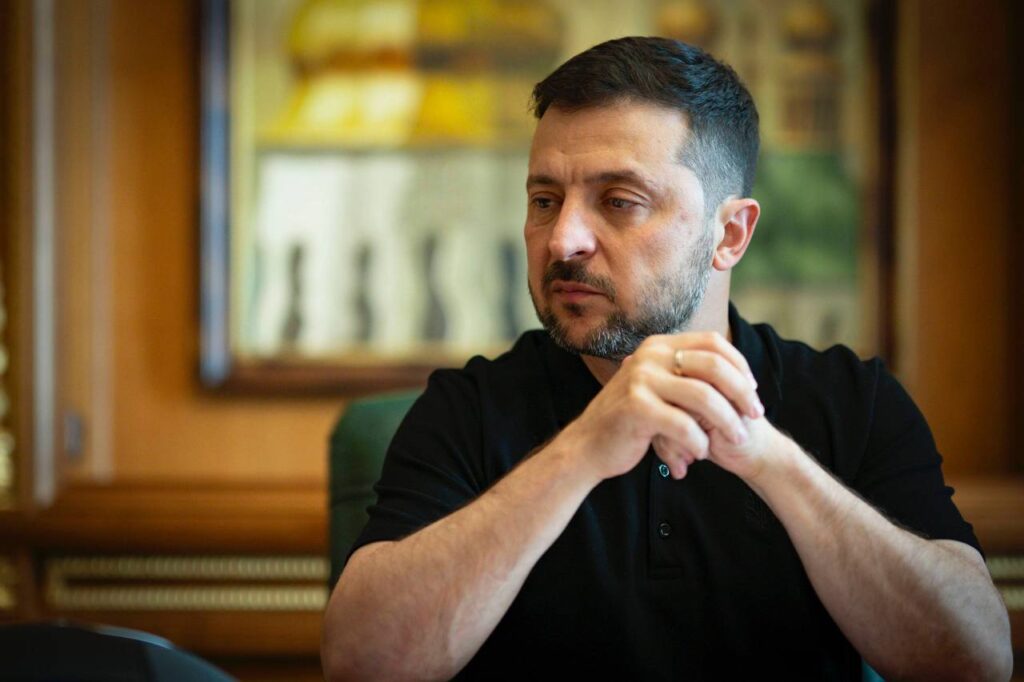

Ukrainian President Volodymyr Zelenskyy accused Russia of deliberately choosing war over peace negotiations as Vladimir Putin traveled to China for a regional security summit. The Ukrainian leader criticized Moscow for ignoring widespread international calls for a ceasefire that have emerged from leaders across multiple continents.
Zelenskyy said in his evening adress that peace talks at the leadership level were proposed in Washington two weeks ago, adding Ukraine remains prepared for such discussions. However, he said Russia has chosen a different path by continuing to invest in military operations rather than diplomacy.
“All signals from Russia indicate only the continuation of aggression,” Zelenskyy said, according to his statement. “During his visit to China, Putin will again seek ways to avoid responsibility – this is his usual tactic.”
The Ukrainian president emphasized the breadth of international opposition to the war, citing calls for peace from major global powers and religious leaders.
“The world unanimously demands a ceasefire: China says this, and India’s Prime Minister, and the leaders of Türkiye, Azerbaijan, Kazakhstan. Today an important statement was made by the Pope. The only one who wants war is Russia,” Zelenskyy said.
Putin’s visit to China comes amid what sources describe as a “crunch moment” in peace talks over the Ukraine war, with the Russian leader attending a regional security summit alongside other leaders.
Zelenskyy argued that international pressure on Moscow must intensify, warning that the war’s continuation destabilizes the global situation. Ukraine expects firm positions from the United States, European Union, and G20 nations, he said.
The Ukrainian president also thanked partners who joined the PURL special program, which enables weapons purchases in the United States for Ukrainian defense forces. He announced that the Netherlands, Norway, Sweden, Denmark, Canada, Belgium, and Latvia joined the initiative in August.
“The total amount in the program has already exceeded $2 billion. Our goal is to add at least one billion monthly. These are funds for purchasing modern weapons – Patriot missiles, HIMARS and other systems that protect our cities,” Zelenskyy said.
The president previously reported that Ukrainian Defense Forces are containing Russian advances in Donetsk Oblast and toward Pokrovsk.
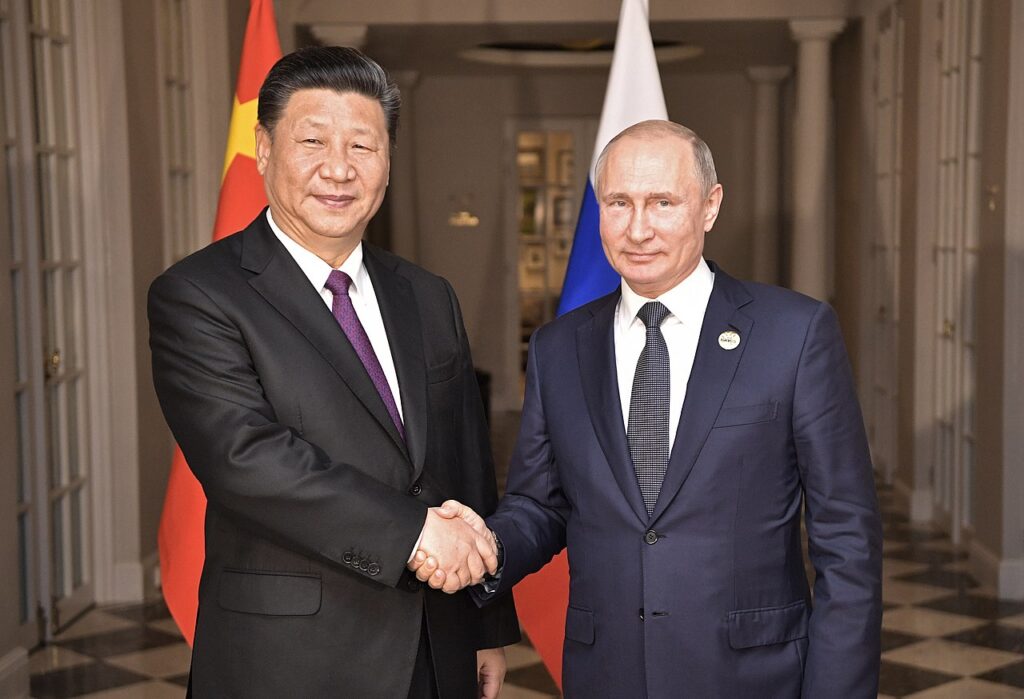

Instead of peace: parades, missiles, and the Shanghai Cooperation Organization summit. Russian President Vladimir Putin has arrived in China on a four-day visit, RBC reports.
He was invited by Xi Jinping to a military parade marking the anniversary of the end of World War II. This comes just as US President Donald Trump’s deadline for a meeting with Ukrainian President Volodymyr Zelenskyy to stop the war is expiring.
The American president gave Putin two weeks to decide on negotiations.
However, the Kremlin not only failed to respond but also launched two massive attacks on Ukraine. More than 1,100 targets have been used, from Shaheds to ballistic missiles. This clearly demonstrates that for Putin, the war matters more than peace. Previously, he had called Zelenskyy an “illegitimate president” of a non-existent country.
Beyond the parade, Putin will participate in the Shanghai Cooperation Organization (SCO) summit, scheduled from 31 August to 1 September in Tianjin. The SCO includes Russia, China, India, Iran, Kazakhstan, Kyrgyzstan, Pakistan, Tajikistan, Uzbekistan, and Belarus.
More than 20 world leaders are expected. The Kremlin dictator plans to meet with Xi Jinping, Iranian President Masoud Pezeshkian, Turkish leader Recep Tayyip Erdoğan, and Indian Prime Minister Narendra Modi.
A Russian drone caught filming its own camera test in a Chinese factory before being shot down in Ukraine
Earlier, Trump imposed tariffs on India over its imports of Russian oil, which fuels Moscow’s war machine. This sparked outrage in Delhi, which pointed out that Europe continues buying Russian oil without facing sanctions.
According to The New York Times, Trump also pressured India to nominate him for the Nobel Peace Prize. After Delhi refused, he retaliated with tariffs.
Against this backdrop, India may strengthen cooperation with Russia and China, both key players in the oil and gas market, and part of the “axis of upheaval”, the growing anti-American collaboration between the nations.


A Russian Gerbera drone shot down over Ukraine was found to contain footage showing a camera test at a Chinese factory. Militarnyi reports that the footage was stored inside the onboard Viewpro A40 camera.
Ukrainian defense forces recovered a Gerbera drone equipped with an A40 camera from the Chinese company Viewpro. According to Militarnyi, the footage discovered inside the drone showed a test of this camera conducted at Viewpro’s production site in Shenzhen.
The “About Communications by Serhii Flash” Telegram channel published the footage and stated that it showed the camera being tested at the Chinese factory.
The Viewpro facility is located in the Aotexing Science Park in Shenzhen’s Nanshan District.
Cyber Boroshno geolocated the footage using coordinates 22.554448, 113.944050 and confirmed that it was filmed at that exact location. The community stated that although the address from the manufacturer’s website does not appear correctly on Google Maps, translating it into Chinese and checking it through Baidu confirmed the location with complete certainty.
Militarnyi notes that Russia continues to receive large volumes of components and finished products from China for use in military systems, including drones.
In March 2025, Militarnyi reported that a new 16-element CRPA antenna had been discovered inside a Shahed kamikaze drone. That antenna was designed to overcome Ukrainian electronic warfare systems.
Russia has also placed significant orders for drone battery systems and continues to cooperate with China in other areas related to unmanned weapons.
In July 2024, the New York Times reported that Russia was importing sanctioned equipment through Hong Kong for use in drone production and other weapons systems.

Thanks to your incredible support, we’ve raised 70% of our funding goal to launch a platform connecting Ukraine’s defense tech with the world – David vs. Goliath defense blog. It will support Ukrainian engineers who are creating innovative battlefield solutions and we are inviting you to join us on the journey.
Our platform will showcase the Ukrainian defense tech underdogs who are Ukraine’s hope to win in the war against Russia, giving them the much-needed visibility to connect them with crucial expertise, funding, and international support.
We’re one final push away from making this platform a reality.


© Visual China Group, via Getty Images


© Haiyun Jiang/The New York Times


© Andrea Verdelli for The New York Times
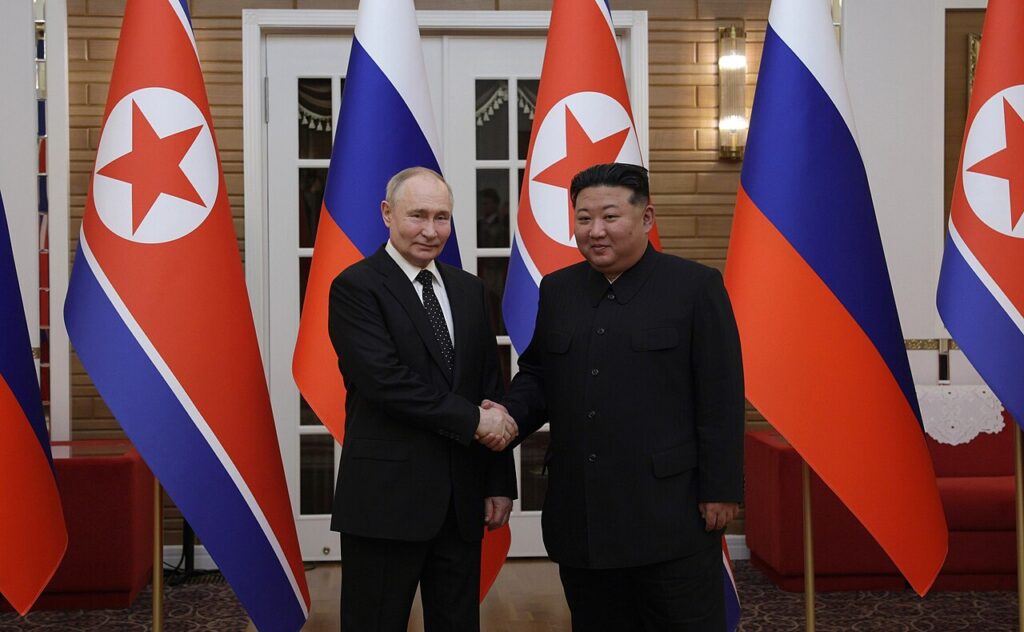

North Korean leader Kim Jong Un and Russian President Vladimir Putin will travel to China to attend next week’s military parade marking the 80th anniversary of the end of World War II, Beijing announced on 28 August. The visit marks Kim’s first trip to China in more than six years.
Assistant Foreign Minister Hong Lei confirmed that 26 world leaders will join Chinese President Xi Jinping at the September 3 event in Beijing, with Russian President Vladimir Putin and Kim Jong Un among the key attendees.
“On the invitation of Chinese President Xi Jinping, 26 foreign leaders will attend the commemorative activities for the 80th anniversary of the victory in the Chinese people’s war of resistance against Japanese aggression and the end of World War II,” Hong said during a briefing in Beijing.
The parade will feature thousands of soldiers marching through Tiananmen Square alongside displays of the People’s Liberation Army’s latest military hardware. Kim’s attendance represents a significant upgrade from North Korea’s previous participation – the country sent senior official Choe Ryong-hae to China’s last Victory Day parade a decade ago.
The gathering will provide a rare opportunity for Xi and Kim to meet in person for the first time since 2019, when Kim visited Beijing and Xi traveled to Pyongyang. The timing comes as traditionally strong China-North Korea ties have shown signs of strain, with analysts noting Pyongyang’s growing strategic alignment with Moscow.
“China and North Korea are friendly neighbors connected by mountains and rivers,” Hong told reporters. “It is the firm position of the [Communist Party] and government to maintain, consolidate and develop the traditional friendship between China and North Korea.”
Hong added that Beijing was willing to work with Pyongyang to “deepen exchanges and cooperation” and “open a new chapter” in bilateral relations. “The world is fraught with turbulence and instability, and the peace deficit continues to grow,” he said. “Safeguarding world peace remains an uphill battle.”
North Korea has moved closer to Russia in recent years, with a Comprehensive Strategic Partnership Treaty taking effect in December that includes a mutual defense pact. The agreement was signed during Putin’s visit to Pyongyang in June last year. North Korea has also deployed troops to fight alongside Russian forces in Ukraine.
The Beijing parade will mark the first time Kim, Putin and Xi appear together in public, presenting what observers see as a show of solidarity against US pressure. Western countries have expressed concerns about the deepening strategic alignment between the three nations.
Among European leaders, only Serbian President Aleksandar Vučić and Slovak Prime Minister Robert Fico will attend. Both previously participated in Russia’s Victory Day parade in Moscow in May, which Xi attended but Kim did not.
Other confirmed attendees include leaders from Indonesia, Malaysia, Vietnam, Cambodia, Laos, Myanmar, and presidents from all five Central Asian countries. Indian Prime Minister Narendra Modi will not attend the parade but will participate in the Shanghai Cooperation Organisation summit in nearby Tianjin on Sunday and Monday – his first China visit in seven years.
“The collective rise of the Global South is fundamentally reshaping the world landscape,” Hong said. “It is no longer a silent majority or a vast expanse of underdevelopment, but now represents an awakened new force and fresh hope for change in this once-in-a-century transformation.”
Ukrainian intelligence estimates that North Korea has sent 20,000 to 30,000 troops to assist Russia, though Western diplomats suggest the actual number may be smaller. Kyiv has repeatedly accused China of supplying Russia with defense components while North Korea has become Moscow’s primary source of artillery shells and ballistic missiles.
The Beijing gathering occurs as the Trump administration seeks to broker negotiations between Russia and Ukraine, with Washington reportedly working to arrange direct talks between President Volodymyr Zelenskyy and Putin.


© Korean Central News Agency, via Reuters


© Anthony Kwan/Getty Images


© Yat Kai Yeung/NurPhoto, via Getty Images


© Sophie Park for The New York Times


© Go Nakamura/Reuters